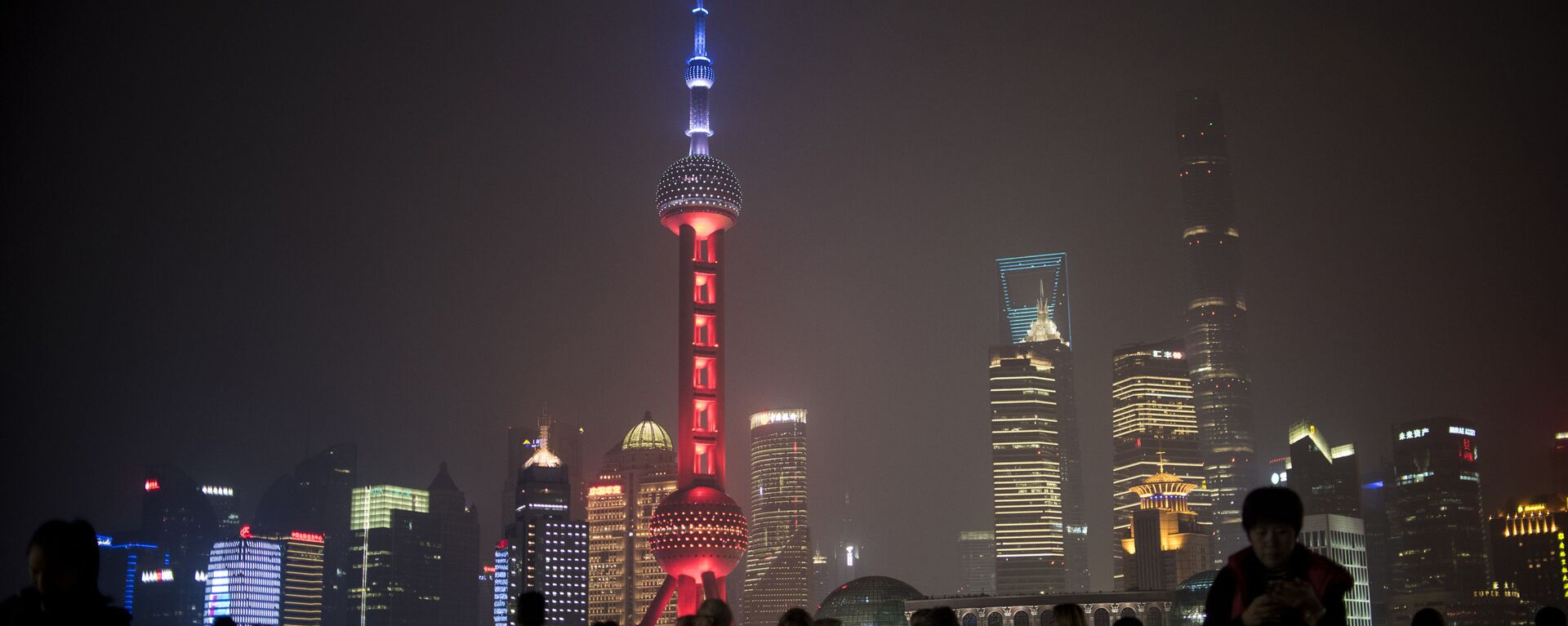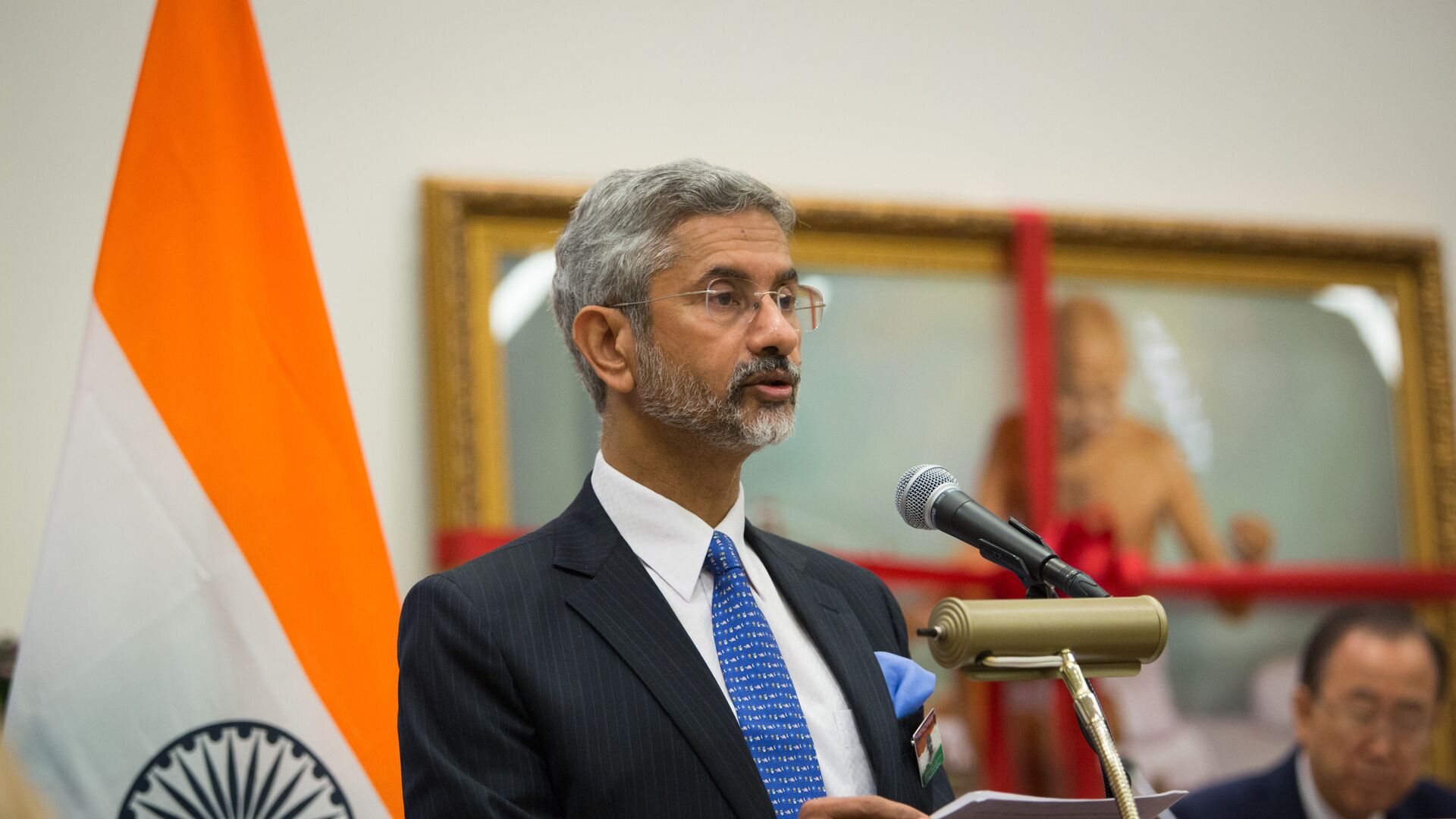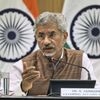https://sputnikglobe.com/20211214/indian-foreign-minister-vows-to-prioritise-national-interests-in-us-china-rivalry-1091508276.html
Indian Foreign Minister Vows to Prioritise National Interests in US-China Rivalry
Indian Foreign Minister Vows to Prioritise National Interests in US-China Rivalry
Sputnik International
Indian Foreign Minister Jaishankar Subrahmanyam said that the country would put its national interests first as “reality has come to bite” during the COVID pandemic.
2021-12-14T13:38+0000
2021-12-14T13:38+0000
2023-03-05T11:36+0000
china
australia
subrahmanyam jaishankar
supply chain
quadrilateral security dialogue (quad)
us-china trade war
tariff war
covid-19
us
trade
https://cdn1.img.sputnikglobe.com/img/104410/23/1044102359_0:0:4000:2251_1920x0_80_0_0_6e5d6edb5720fd851e936b228d4adada.jpg
Indian Foreign Minister Subrahmanyam Jaishankar said that the country would put its national interests first as “reality has come to bite” during the COVID pandemic. Speaking at the Global Technology Summit 2021, the minister argued that rather than strengthening the global supply chain, one should first boost the “domestic supply chain".Describing the idea of opening the Indian economy up for others to operate on “terms which are advantageous to them” as “ridiculous”, Jaishankar said that the purpose of the partnership is to increase capabilities. “We are not going to do a partnership for the sake of partnership,” he emphasised.Striking a protectionist note to reduce exposure to "foreign powers" on imports because of the pandemic, the Indian minister underlined that the big lesson from the COVID pandemic is the "need for shorter supply chains and more domestic capacity". Disruption in the supply chains affected Indian manufacturing, pharmaceuticals, and other sectors, leading to a record contraction in national income in 2020.Jaishankar's remarks come against the backdrop of ongoing US-led efforts to alienate its industries from China. Trade pundits say that the world economy has already entered into a decoupling phase, pressing industries in each nation to grow independently from their rivals elsewhere.Jaishankar called "decoupling" a fashionable word that is "easier said than done" in the interconnected and interdependent world.The minister emphasised that much of the Quad countries' interdependence with China on trade issues will remain the same, "but the critical ones will change". Quad is a strategic grouping of four nations, including the United States, India, Japan, and Australia."But it will not happen overnight, it will not be linear, and when the smoke clears, you will see a different set of networks to what was there before," Jaishankar further explained.In a recent study paper entitled 'Understanding U.S.-China Decoupling', the US Chamber of Commerce's China Centre suggests that if decoupling leads to the sale of half of the US foreign direct investment (FDI) stock in China, American investors will lose $25 billion per year in capital gains, and models point to one-time Gross Domestic Product (GDP) losses of up to $500 billion.It further assessed that the US would forego $190 billion in GDP annually by 2025 if 25 percent tariffs were expanded to cover all two-way trade. The direct trading relationship accounting for goods and services between the US and China was $737.1 billion in 2018, before the trade war.However, three years after Donald Trump's tariffs were initiated "to fix the US trade deficit", bilateral trade again rebounded to all-time highs, with China's trade surplus increasing at a brisk pace this year. The two countries are negotiating a trade deal in the "interest of global trade". India's bilateral trade with China exceeded $100 billion, the highest level ever, this year despite border tensions and a clampdown on Chinese investments in some strategic sectors by New Delhi.
https://sputnikglobe.com/20211129/shanghai-data-exchange-how-china-is-set-to-outpace-us-in-data-trade--technological-competition-1091117915.html
china
australia
Sputnik International
feedback@sputniknews.com
+74956456601
MIA „Rossiya Segodnya“
2021
Rishikesh Kumar
https://cdn1.img.sputnikglobe.com/img/07e4/08/04/1080055820_0:0:388:389_100x100_80_0_0_40018ee210946d65d49ffba4f4c008e1.jpg
Rishikesh Kumar
https://cdn1.img.sputnikglobe.com/img/07e4/08/04/1080055820_0:0:388:389_100x100_80_0_0_40018ee210946d65d49ffba4f4c008e1.jpg
News
en_EN
Sputnik International
feedback@sputniknews.com
+74956456601
MIA „Rossiya Segodnya“
Sputnik International
feedback@sputniknews.com
+74956456601
MIA „Rossiya Segodnya“
Rishikesh Kumar
https://cdn1.img.sputnikglobe.com/img/07e4/08/04/1080055820_0:0:388:389_100x100_80_0_0_40018ee210946d65d49ffba4f4c008e1.jpg
us-china rivalry, indian foreign minister jaishankar subrahmanyam, supply chain disruptions, covid-19 pandemic
us-china rivalry, indian foreign minister jaishankar subrahmanyam, supply chain disruptions, covid-19 pandemic
Indian Foreign Minister Vows to Prioritise National Interests in US-China Rivalry
13:38 GMT 14.12.2021 (Updated: 11:36 GMT 05.03.2023) India was dealt a massive blow last year when it was exposed to disruption in the global supply chain because of the COVID pandemic. A number of industries faced a shortage of raw materials from China. At the same time, the Serum Institute of India accused the US of disrupting vaccine production by banning exports of raw materials.
Indian Foreign Minister Subrahmanyam Jaishankar said that the country would put its national interests first as “reality has come to bite” during the COVID pandemic.
Speaking at the Global Technology Summit 2021, the minister argued that rather than strengthening the global supply chain, one should first boost the “domestic supply chain".
Describing the idea of opening the Indian economy up for others to operate on “terms which are advantageous to them” as “ridiculous”, Jaishankar said that the purpose of the partnership is to increase capabilities.
“We are not going to do a partnership for the sake of partnership,” he emphasised.
Striking a protectionist note to
reduce exposure to "foreign powers" on imports because of the pandemic, the Indian minister underlined that the big lesson from the COVID pandemic is the "need for shorter supply chains and more domestic capacity".
"The orthodox international relations with national relations has come into conflict with the mantras of globalisation," he said, hinting at disruptions in the global supply chain by the US and China.
Disruption in the supply chains affected Indian manufacturing, pharmaceuticals, and other sectors, leading to a record contraction in national income in 2020.
Jaishankar's remarks come against the backdrop of ongoing US-led efforts to alienate its industries from China. Trade pundits say that the world economy has already entered into a decoupling phase, pressing industries in each nation to grow independently from their rivals elsewhere.
Jaishankar called "decoupling" a fashionable word that is "easier said than done" in the interconnected and interdependent world.
"Anyone with serious business experience would challenge [decoupling] which is much easier said than done. What you are going to see is not decoupling, what you are going to see to some extent is hedging and de-risking with shorter supply chains, and more transparent options."
Jaishankar Subrahmanyam
India's Minister of External Affairs
The minister emphasised that much of the Quad countries' interdependence with China on trade issues will remain the same, "but the critical ones will change". Quad is a strategic grouping of four nations, including the United States, India, Japan, and Australia.
"But it will not happen overnight, it will not be linear, and when the smoke clears, you will see a different set of networks to what was there before," Jaishankar further explained.
In a recent study paper entitled '
Understanding U.S.-China Decoupling', the US Chamber of Commerce's China Centre suggests that if decoupling leads to the sale of half of the US foreign direct investment (FDI) stock in China, American investors will lose $25 billion per year in capital gains, and models point to one-time Gross Domestic Product (GDP) losses of up to $500 billion.

29 November 2021, 18:59 GMT
It further assessed that the US would forego $190 billion in GDP annually by 2025 if 25 percent tariffs were expanded to cover all two-way trade.
The direct trading relationship accounting for goods and services between the US and China was $737.1 billion in 2018, before the trade war.
However, three years after Donald Trump's tariffs were initiated "to fix the US trade deficit", bilateral trade again rebounded to all-time highs, with
China's trade surplus increasing at a brisk pace this year. The two countries are negotiating a trade deal in the "interest of global trade".
India's bilateral trade with China exceeded $100 billion, the highest level ever, this year despite border tensions and a clampdown on Chinese investments in some strategic sectors by New Delhi.




